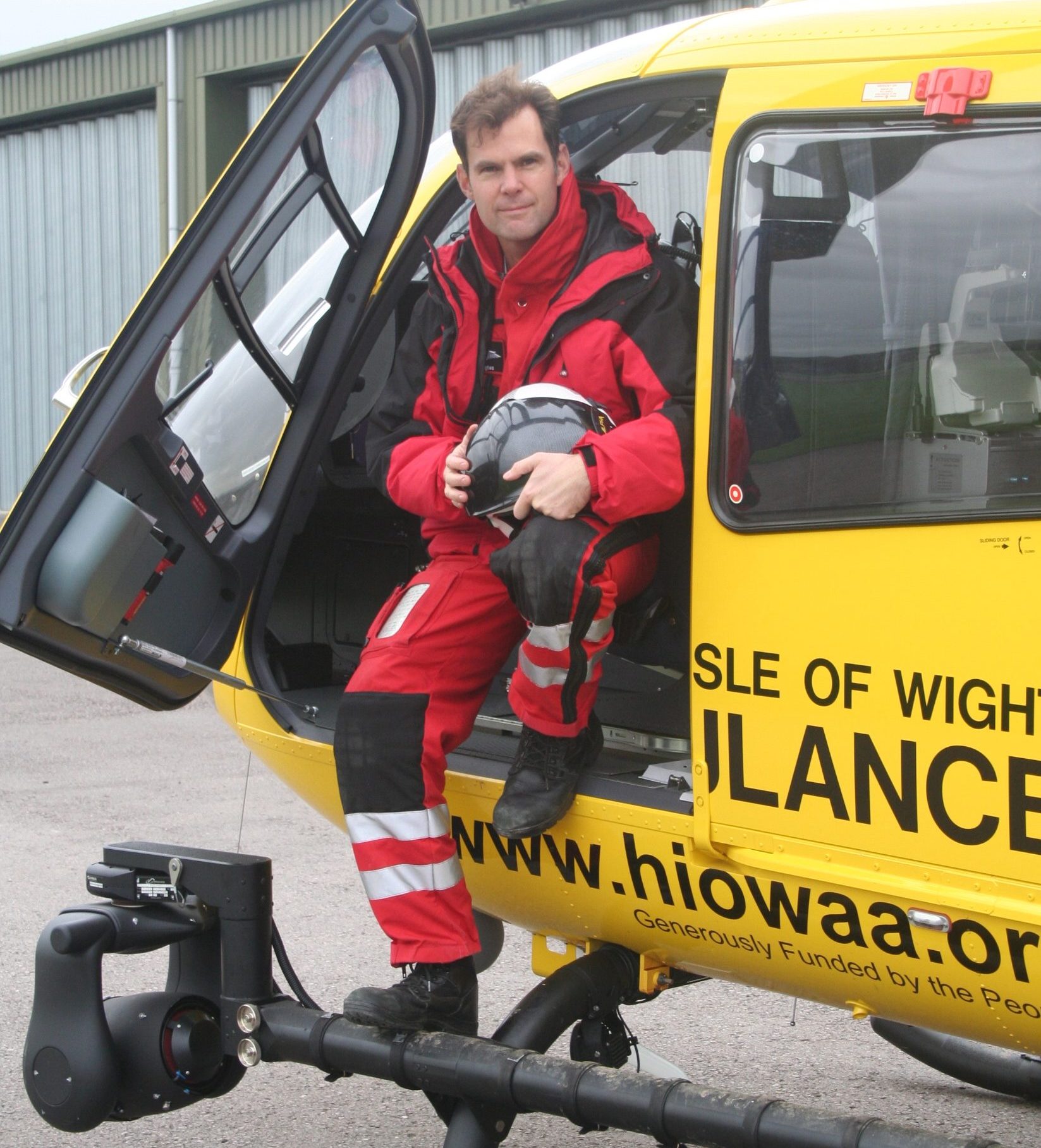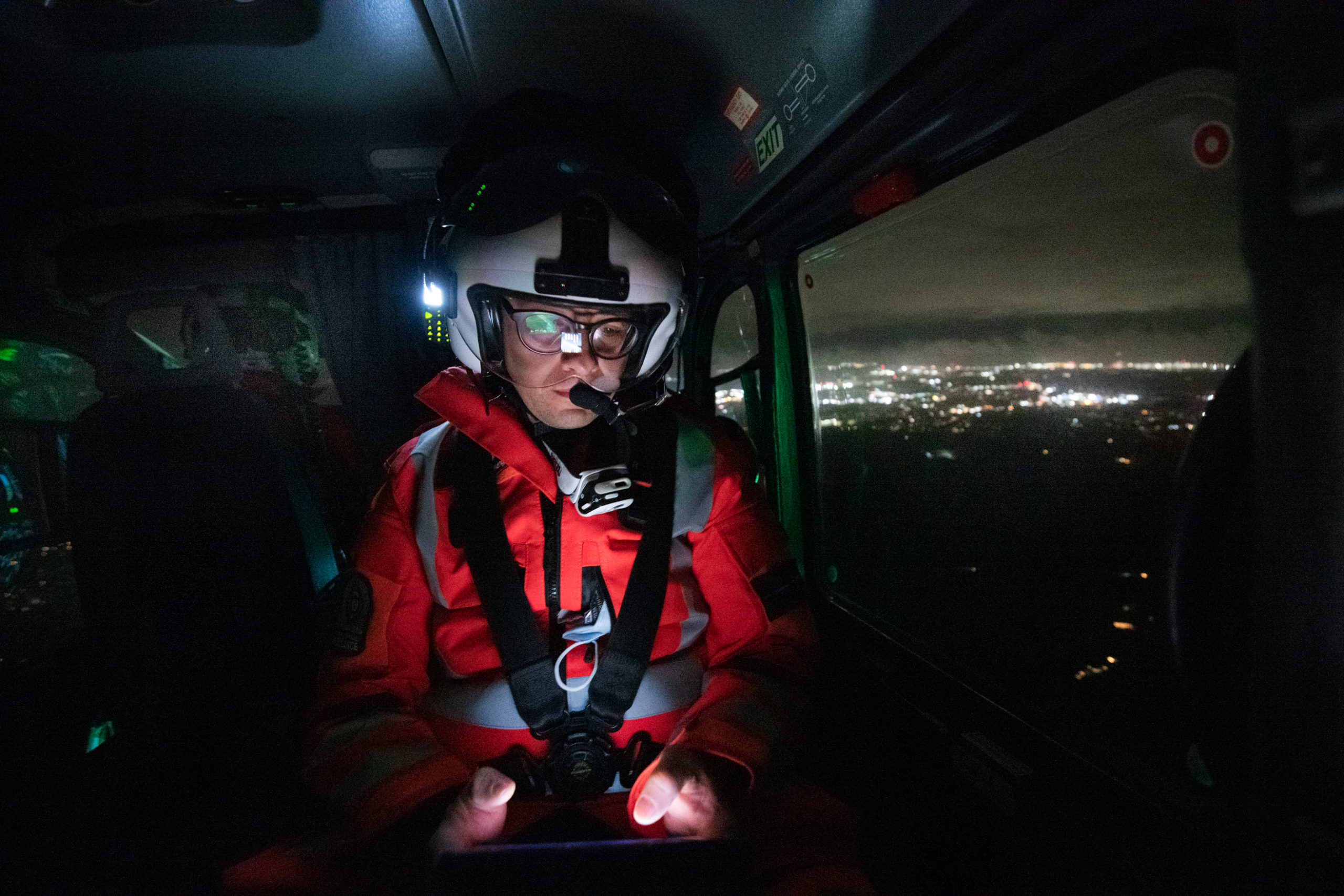Dr Simon Hughes is a helicopter emergency medical service (HEMS) doctor and consultant anaesthetist. He’s been a HEMS doctor since 2006 and flying with Hampshire and Isle of Wight Air Ambulance since 2012.
For 16 years Simon worked around the world as part of the Royal Air Force, with forward deployments during the Iraq and Afghanistan conflicts amongst others, as well as a 12-month HEMS and Intensive Care stint in Sydney, Australia.
Simon gives us his views on HEMS going forward and the jobs in his in-tray.
What changes have you seen in HEMS over the years?
The UK, or certainly England, has gone through the most incredible journey for HEMS over the last 10-15 years. And it’s been fascinating and rewarding to be a part of that journey.
The level of care we can provide at a patient’s side, whether we’re in their house or at the roadside, has drastically improved. Part of that is down to paramedicine as a profession, which has gone through a huge change, and the state-of-the-art kit and equipment we carry. This has been crucial for our patients.
There’s a long way to go to but it’s exciting to see where the future takes us.

What are some of the jobs in your clinical lead in-tray?
There’s a lot of challenges that will be falling on my plate:
Operating hours
Not only have we evolved to flying 365 day a year but since 2014 we’ve been flying at night and are now fully operational from 7am – 2am.
However, we need to determine whether our current flying hours are the best model to suit the needs of our patients. There’s no doubt that although the frequency of big trauma and very serious medical patients are reduced after 2am, it does still happen.
And for the Isle of Wight in particular, getting sick patients off the Island after 2am becomes increasingly difficult.

Crew coverage
When I started, doctor coverage was very patchy. We were volunteers and would come in on any spare time we had from the hospital. For the paramedics on the road, it was a guessing game as to what sort of response they would get from us.
For the last 10 years, however, we’ve had far more reliable doctor coverage. Ensuring our doctor and paramedic coverage is at the highest possible rate it can be is vital. Our paramedics on the helicopter as well as those working with the ambulance service on the road have seen huge advances in their training, knowledge and capability.
Research and Development
We’ve been at the forefront of many of HEMS developments over the years. To keep pushing the boundaries, we’ve recently appointed a research lead.
Trying to do pre-hospital research is very challenging, much harder than in hospital, but there are some really exciting developments happening. And we’re keeping a very close eye on as to whether there are things we should be doing here.
How important is it to continue moving forward?
Crucial. We must never be complacent. We have to keep questioning ourselves. Was the care that we just delivered the best possible on the planet? And if not, even if it’s just a tiny iota, how can we make sure it was.
We turn up to people having the worst day of their life. Being on a scene is often chaotic with lots of emergency responders all arriving at the same time. We’re part of an amazing system.
But you have to work together as a team, often with people you’ve never met before, and save somebody’s life at the roadside or in their home.
What’s your favourite part of the job?
The best thing about this job is the team we have here. We have brilliant people; really qualified individuals wanting to bring their best to work. From the charity staff and volunteers to the hospital care group, everyone wants the same thing.
We’ve been challenged along the way, not least with Covid-19, but I am excited about where we are now. And I think we’re in a really exciting point where the future is positive.
What do you want to say to our supporters?
Without our supporters, I would be closing the doors to the Airbase and not coming back again – the system just would not work. We literally would not be able to function. And it’s really important we remember that. Everything that we receive comes from the generosity of the people from Hampshire and the Isle of Wight.
So, a huge thank you.









